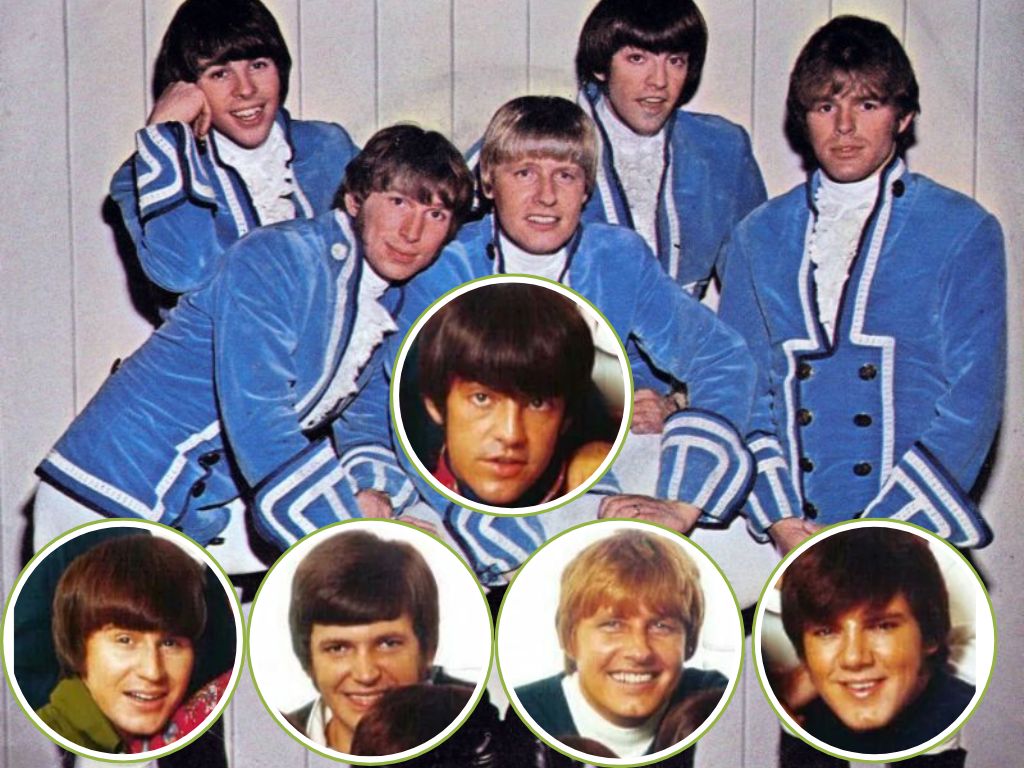
“Kicks”: A Potent Warning Against the Perils of Chasing Fleeting Pleasures
Ah, the swinging Sixties. A time of burgeoning youth culture, a clash of ideals, and music that echoed the rapid societal shifts. Amidst the British Invasion and the burgeoning psychedelic scene, there was an American band, distinctive in their Revolutionary War-era attire, who consistently delivered energetic, garage-rock infused pop: Paul Revere & The Raiders. And perhaps no song encapsulates their unique position in that era quite like their 1966 smash hit, “Kicks.”
This wasn’t just another catchy tune to dance to; “Kicks” was, in its very essence, a cautionary tale. Penned by the legendary songwriting duo Barry Mann and Cynthia Weil, the song was a direct response to the escalating drug culture of the mid-1960s. It’s said that Mann and Weil wrote it with a specific person in mind: their friend, fellow songwriter Gerry Goffin, who was grappling with drug addiction at the time. The lyrics, delivered with conviction by Mark Lindsay‘s unmistakable vocals, pleaded with someone on the brink, urging them to find genuine satisfaction in life rather than resorting to fleeting, artificial highs. “Before you find out it’s too late, girl, you better get straight,” Lindsay implores, a sentiment that was surprisingly, almost defiantly, sober in an era that was increasingly embracing experimentation. The song’s ultimate message is a profound one, suggesting that true happiness and escape aren’t found in external substances, but within oneself: “You’ll never run away from you.”
When “Kicks” burst onto the airwaves, it was an undeniable success. Released in March 1966, it quickly climbed the charts, peaking at an impressive number 4 on the U.S. Billboard Hot 100, and even soared to number 1 in Canada. This was a significant achievement for Paul Revere & The Raiders, marking their highest-charting U.S. hit up to that point, a testament to its undeniable appeal and resonant message. It was featured on their fifth album, Midnight Ride, released in May of the same year, which itself achieved gold status.
Yet, its very anti-drug stance, while commendable, also placed it in a peculiar cultural crosscurrent. While it resonated with a segment of the population, particularly parents and those wary of the counterculture, it also drew criticism from some of the more radical elements of the emerging youth movement. Artists like The Beatles, Jefferson Airplane, and The Byrds were releasing songs that, either overtly or subtly, touched upon or even celebrated psychedelic experiences. In this landscape, Paul Revere & The Raiders, with their clean-cut image and straightforward message, were sometimes seen as “the Establishment,” a stark contrast to the rebellious spirit of many of their contemporaries. David Crosby of The Byrds, whose own song “Eight Miles High” had faced boycotts from some radio stations due to its perceived drug references, famously dismissed “Kicks” as a “dumb anti-drug song” with a “falsely adopted stance.”
But time, as they say, has a way of sorting things out. Decades later, “Kicks” is widely lauded by music critics. Its tight garage-rock arrangement, the superb production by Terry Melcher (the son of Doris Day, no less), and its enduring, earnest message have given it a lasting legacy. It’s a reminder that even amidst the revolutionary changes of the 1960s, there were voices of caution, offering a different perspective on the pursuit of “kicks.” For those of us who remember those times, whether we were swept up in the whirlwind of change or watched from a slightly more conservative vantage point, “Kicks” remains a vibrant, albeit sobering, snapshot of an era when the choices seemed stark, and the roads diverged, sometimes dramatically. It’s a song that still echoes today, a timeless warning wrapped in a perfect pop package.